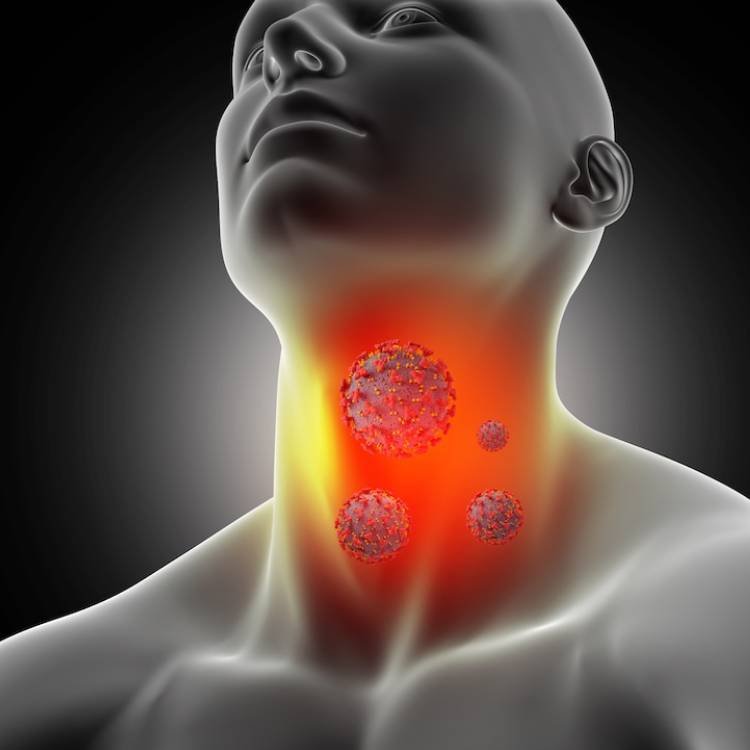Thyroid Disease
Thyroid disease refers to any dysfunction of the thyroid gland, a small butterfly-shaped organ located in the front of the neck. This gland plays a crucial role in regulating various metabolic processes in the body by producing hormones, primarily thyroxine (T4) and triiodothyronine (T3). These hormones influence metabolism, energy production, temperature regulation, and growth. Disorders of the thyroid can manifest as hypothyroidism (underactive thyroid), characterized by symptoms like weight gain, fatigue, and cold intolerance, or hyperthyroidism (overactive thyroid), presenting symptoms such as weight loss, rapid heartbeat, and heat intolerance. Other conditions include thyroiditis (inflammation), thyroid nodules, and autoimmune thyroid diseases like Hashimoto's thyroiditis and Graves' disease, all impacting hormone production and overall health.

Thyroid disorders can broadly be categorized into:
- Hypothyroidism: This occurs when the thyroid gland produces insufficient thyroid hormones. Common symptoms include fatigue, weight gain, cold intolerance, dry skin, constipation, and depression. The most common cause of hypothyroidism in iodine-sufficient regions is autoimmune thyroiditis (Hashimoto's disease), where the body's immune system attacks the thyroid gland.
- Hyperthyroidism: This condition results from excessive production of thyroid hormones. Symptoms include weight loss, increased appetite, heat intolerance, sweating, nervousness, irritability, and irregular heartbeat. The most common cause of hyperthyroidism is Graves' disease, an autoimmune disorder where antibodies stimulate the thyroid to produce too much hormone.
- Thyroid Nodules: These are lumps or abnormal growths within the thyroid gland. While most thyroid nodules are benign, some may be cancerous. Nodules may cause no symptoms or can be associated with pain, difficulty swallowing, or voice changes.
- Thyroid Cancer: Although less common than benign thyroid nodules, thyroid cancer can develop from abnormal growth of thyroid cells. It often presents as a nodule in the thyroid gland, and symptoms can include swelling in the neck, difficulty swallowing, and changes in the voice.
